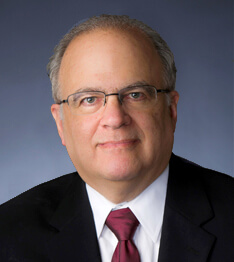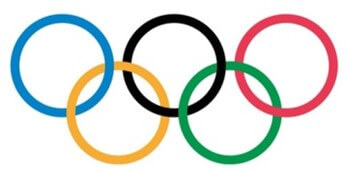Ring! Ring! Ring! Ring! Ring! It’s the Olympics Calling!
July 26, 2024


Mitchell Stabbe
By: Mitchell Stabbe, Wilkinson Barker Knauer, LLP via the Broadcast Law Blog
Earlier this year, we posted updated guidelines about engaging in or accepting advertising or promotions that directly or indirectly allude to the Super Bowl without a license from the NFL or the Final Four Tournament without a license from the NCAA. See here, here and here. Now, it is time to think about these issues in the context of the 2024 Paris Olympics!
The guidance from our prior blog posts addressed the following subjects, and offered warnings about conducting any of these activities when tied to any trademarked phrase referring to events like the Super Bowl or March Madness:
- Advertising that refers to the event or other associated trademarks;
- Advertising that uses non-trademarked terms that will be understood by the public to refer to the event;
- Conducting or sponsoring events and parties for viewing the event;
- Sweepstakes or giveaways that use the name of the event as part of its name or offer prizes that include game tickets;
- Offering “special” coverage relating to the event, accompanied by advertising;
- Congratulatory advertising; and
- Whether disclaimers will provide a defense to a claim.
The concepts advanced in those discussions apply equally to the Olympics, but the US Olympic & Paralympic Committee (USOPC), formerly the United States Olympic Committee (USOC), has a unique weapon in its arsenal, so there are additional considerations of which you should take note.
Ted Stevens Olympic and Amateur Sports Act
In addition to having trademark rights based on registration and use of its marks, the USOPC is the beneficiary of a special federal statute, the Ted Stevens Olympic and Amateur Sports Act, which grants it the exclusive right to use various words and logos commercially or in connection with an athletic event, performance or competition. These marks include “United States Olympic Committee,” “Olympic,” “Olympiad,” “Pan American,” “Cities Altius Forties,” “Paralympic,” “Paralympic” and the symbol of the International Olympic Committee – the five interlocking, blue, yellow, black, green and red rings (shown below).


Why do the Olympics deserve such extra protection? This law was enacted in 1968, a time when, unlike most countries, the United States did not use public funds to support amateur athletes, while barring the athletes from receiving corporate sponsorships or support. Thus, there was a perception that the United States was not able to be competitive with teams from countries that financially supported their teams directly. Hence, the law was enacted to create and protect a greater income stream for the USOPC from sponsors and supporters, which it could use to support US teams and their athletes. (The value of worldwide media rights for the Paris 2024 Olympics is estimated to be $3.3 Billion, of which approximately 46% is for United States media rights.)
USOPC Trademark Protection Efforts
Although regular readers of this blog are undoubtedly aware of the risks involved in using trademarks associated with sporting events (or athletes) without permission, infringing uses have continued. When that occurs, the USOPC has not hesitated to enforce its trademark rights aggressively, as recently as several days ago. For example:
- Just last week, on July 19, 2024, following the failure to respond to a demand letter, the U.S. Olympic and Paralympic Committee sued the company of a YouTuber, Logan Paul, the manufacturer of a sport drink, the “Kevin Durant Olympic Prime Drink,” in federal Court in Colorado. The complaint also alleged infringement of the marks “OLYMPIAN,” “TEAM USA” and “GOING FOR GOLD.” It may be that the marks are only used in marketing and social media posts, in connection with describing Kevin Durant’s Olympic accomplishments, rather than on the product itself. See here, here and here for examples of the uses. While a protected word or phrase may be used in an article describing the sporting activities, the defense is limited and, where the protected words are used in a commercial context, they are much harder to defend. So, if that defense is raised in this case, where the product’s own name uses a protected word, the defense is unlikely to succeed.
- Notably, in 1987, the Supreme Court agreed with the USOC that it could bar the use of “Gay Olympic Games” for a proposed international event, because the use would be to promote an athletic event and because aspects of the use were commercial. The event was renamed the “Gay Games.”
- In 2010, the USOC prevailed on a claim against a children’s sports camp called “Camp Olympic” and its use of a symbol consisting of five unconnected rings and a torch.
- In 2012, Athens Voulgaris’s, the operator of a small Greek food eating establishment in Pennsylvania that had been named “Olympic Gyro” since 1982 received a cease-and-desist letter from the USOC. He changed its name to “Olympia Gyro.”
For the USOPC’s Guidelines on Commercial Use of its Trademarks, click here.
Use of Olympic Insignia by the Media
Significantly, the Ted Stevens Act does not explicitly provide any basis for challenging “fair use” of the Olympic insignia, such as in news reporting and commentary (such as this blog). The statute also permits the use of the word “Olympic” that began prior to September 21, 1950, or to refer to businesses located in Washington State, west of Washington’s Cascades (or Olympic) Mountain Range, provided that operations, sales and marketing outside this area are not substantial. Nevertheless, the USOPC has pushed the envelope trying to restrict the scope of these limitations on its rights. For example:
- In 2009, the USOC challenged an attempt to register “Daily Olympian” for the primary newspaper located in Olympia, Washington, which had used the name “The Daily Olympian” since 1889, but changed it to “The Olympian” in 1982. Ultimately, the opposition was withdrawn after the newspaper agreed to amend its application for registration to a daily newspaper “targeting residents of Olympia Washington and surrounding geographic area.”
- In 2001, the USOC sued a newspaper that published a magazine entitled, “OLYMPICS USA” which also incorporated the Olympic words and marks. The magazine included layouts for various Olympic events containing photographs of athletes participating in the events, full-length article profiles of some of the athletes, an event and broadcast schedule and paid advertisements. A motion to dismiss was granted on the basis that sales of newspapers, books and magazines do not constitute commercial speech. Even though the defendant may be motivated by profit, the marks may be used to solicit customers to buy the publication, and advertising appears in the publications, the publication was not considered “commercial speech: because its primary purpose was not to “propose a commercial transaction” but instead to report on the athletic competitions.
- Some years ago, I responded to a claim by the USOC against the use of the Olympic rings as part of what was clearly news coverage of the games. The cease-and-desist letter was sent because, in the online version of the publication, the Olympic rings appeared behind the text of a news story as a watermark, but the logo downloaded more quickly and was visible a second or two sooner than the text of the story. (After the technical reasons for this occurrence were explained, the USOC did not pursue the claim.)
Thus, as with advertising or promotional activities that reference the Super Bowl, March Madness or other sporting events, broadcasters and other media may want to consider whether to engage in activity that may invite a claim, and the resultant costs of defending against such a claim, either based on its own activity or on advertising that it publishes, regardless of the likely outcome. In addition, however, because of the special statute protecting its marks, a claim by the USOPC could have merit where a similar claim by other sports organizations would not.
Potential Liability for Publishing Infringing Advertising
In certain circumstances, the federal trademark statute (the Lanham Act) limits the liability of publishers who carry third-party advertising that infringes the trademark rights of others. Under this “innocent infringer” defense, on a claim under the Lanham Act, if the advertising is published without knowledge that it may be infringing, the publisher is only subject to injunctive relief — monetary damages will not be awarded. Claims by the USOPC, however, may be based on the extraordinary rights granted to it under the Ted Stevens Act and the “innocent infringer” defense may not necessarily apply. This concern is an important one for media companies carrying advertising that may infringe on an USOPC mark, as they could be liable for improper uses of Olympic marks. Vet your advertising to make sure that, if a mark is used, the user has the rights to do so.
Ambush Marketing
One other potential area of risk involves what is known as “ambush marketing,” i.e., marketing that attempts to create an association with an event such as the Olympics without specifically referring to it. This type of advertising is considered to be a worldwide problem by the International Olympic Committee (IOC) and other sports organizations.
One ingenious example (of which there are many) was an advertisement by a New Zealand telecom that used the word ‘ring’ (which ostensibly referred to the sound of a telephone) in print advertising. The word appeared five times in two rows, three times in the top row and twice in the bottom row, in the colors blue, black, red, yellow and green, i.e., the same configuration and color scheme as the Olympic rings. The court in New Zealand ruled in favor of the telecom, reasoning that the typical newspaper reader browses advertisements and the ad would be viewed as mildly amusing and not as having been published with permission by the Olympics.
In recent years, however, the IOC has requested host countries and potential host countries enact broad legislation directed at stopping ambush marketing. The 2024 Olympics will be held in Los Angeles, so it remains to be seen whether additional legislation to benefit the IOC and the USOPC will be proposed and enacted in the United States.
Conclusion
The Olympics are big business and the USOPC has not hesitated to enforce its rights. Given the special status given to the marks controlled by the USOPC, be especially careful in your advertising and promotions during this Olympic year.
